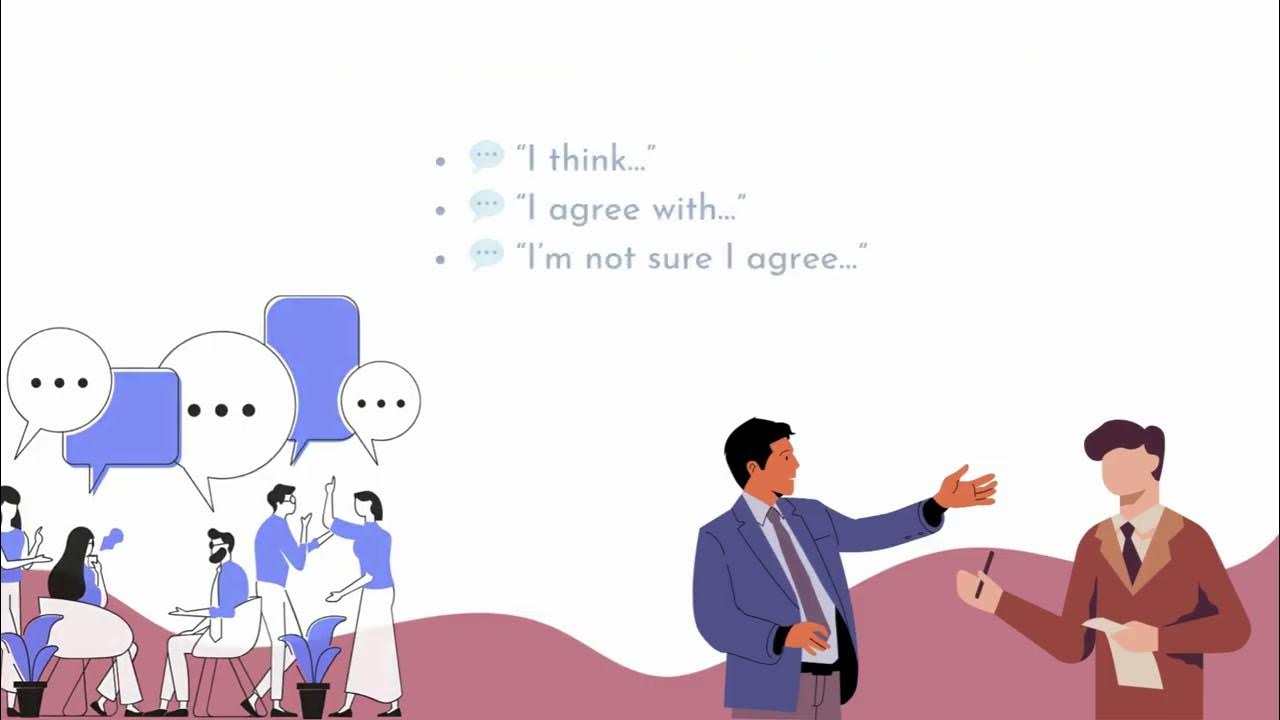Write well. Start writing now. | Adam Benn | TEDxVitoriaGasteiz
Summary
TLDRThe speaker emphasizes the importance of effective written communication in our increasingly digital world, where first impressions are often made through emails or online interactions. They highlight that writing is a skill often underdeveloped and overlooked, despite its significant impact on personal and professional success. The speaker debunks the myth that one must be a professional writer to write well and stresses that clear, concise, and correct writing is achievable for everyone. They offer practical advice on improving writing skills, including adhering to the 'three C's' (clear, concise, correct), revising drafts, and practicing daily writing. The talk concludes with the Latin adage 'vox audita perit, littera scripta manet' to underscore the enduring power of the written word.
Takeaways
- 😀 First Impressions Matter: The way we present ourselves verbally and in writing is crucial, as it sets the tone for our interactions.
- 💻 Online Communication: In the digital age, written communication is more important than ever, as it often precedes face-to-face meetings.
- 📝 Impact of Writing: Writing can significantly affect our personal and professional lives, shaping how we are perceived by others.
- 📉 Cost of Poor Writing: Poor writing skills can lead to significant economic losses, with businesses in the U.S. losing nearly $400 billion annually due to lost productivity.
- 🤔 Perception of Writing: Many people fear writing or underestimate its importance, often due to a lack of confidence or understanding of its impact.
- 📖 Writing vs. Speaking: Writing is a more challenging form of communication because it lacks the non-verbal cues present in speech.
- 🎯 Importance of Clarity: Effective writing requires clear and direct communication, leaving no room for ambiguity or misinterpretation.
- ✍️ Writing as a Skill: Writing is a skill that can be developed and honed, and it does not require one to be a professional writer to do it well.
- 🔄 Revision and Feedback: Never settle for the first draft; always seek fresh perspectives and feedback to improve your writing.
- 📚 Practice Makes Perfect: Regular writing practice, even in simple forms like shopping lists, can enhance your overall writing ability.
- 📚 Read to Improve: Reading regularly can significantly improve one's writing skills by exposing you to different styles and techniques.
Q & A
What is the main point of the speaker's opening remarks about communication?
-The speaker emphasizes that non-verbal cues like the way one walks, looks, or dresses can influence first impressions, but in an online context, written communication becomes crucial for making a first impression.
Why is written communication more important today than ever before?
-The speaker points out that with the increasing prevalence of online interactions in work and personal life, written communication is often the first and sometimes only interaction people have with each other.
What are some examples given where written communication is essential?
-Examples include submitting resumes online for job applications, filling out bios on dating apps, registering children for school, and applying for bank loans.
What is the cost of poor writing to businesses in the U.S. annually, according to the speaker?
-The speaker mentions that poor writing costs businesses nearly 400 billion dollars a year in lost productivity.
How long do HR managers spend on average scanning a resume?
-HR managers spend an average of 10 seconds scanning a resume to decide a candidate's fate.
What is the speaker's advice regarding the permanence of content posted online?
-The speaker advises that what is posted online stays online and can have long-term consequences, so one should be cautious about what they write, especially on social media.
Why does the speaker suggest that people should not underestimate the importance of writing?
-The speaker argues that writing is a skill that can dramatically impact one's life, and yet many people either fear it or do not develop it adequately.
What is the speaker's perspective on the relationship between speaking and writing?
-The speaker believes that while speaking comes with natural aids like tone, pace, and body language, writing is an exercise in isolation where the writer must be precise and clear.
What are the 'three C's' of writing that the speaker suggests to improve communication?
-The 'three C's' are being clear, concise, and correct in one's writing to ensure effective communication.
What is the speaker's second tip for improving written communication?
-The speaker's second tip is to never be satisfied with the first draft and always get fresh eyes on your text for feedback and improvement.
How does the speaker recommend practicing writing skills?
-The speaker recommends writing every day, starting with simple tasks like making shopping lists or to-do lists, and also emphasizes the importance of reading to improve writing skills.
What is the Latin expression mentioned by the speaker, and what does it mean?
-The Latin expression is 'vox audita, perit; littera scripta, manet,' which translates to 'the spoken word perishes, the written word remains,' highlighting the enduring impact of written communication.
Outlines

This section is available to paid users only. Please upgrade to access this part.
Upgrade NowMindmap

This section is available to paid users only. Please upgrade to access this part.
Upgrade NowKeywords

This section is available to paid users only. Please upgrade to access this part.
Upgrade NowHighlights

This section is available to paid users only. Please upgrade to access this part.
Upgrade NowTranscripts

This section is available to paid users only. Please upgrade to access this part.
Upgrade NowBrowse More Related Video

6 communication truths that everyone should know | Antoni Lacinai | TEDxVasa

“Flight from Conversation” by Sherry Turkle - Essay Example

The psychology of communicating effectively in a digital world | Helen Morris-Brown | TEDxSquareMile

Digital Literacies and My Identities - Project Micro Teaching CALL

Manuel Castells e a Sociedade em Rede - Teoria da Comunicação II UNIRP

Digital Literacy: Realizing the Promise of Technology | Shauna Begley | TEDxRoyalRoadsU
5.0 / 5 (0 votes)